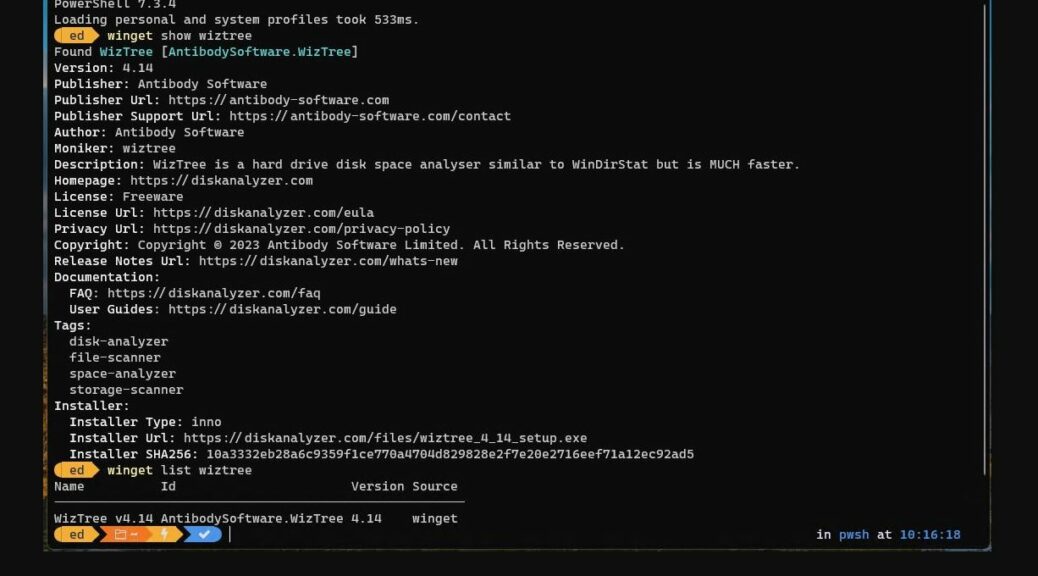Here’s a question whose best practices answer may save admins time and effort. While indeed many developers now push regular updates for their software, not all are equally urgent. Why? Because whereas some updates add valuable new functionality or plug serious security gaps, others may not introduce much of note. That’s why, IMO, tracking minor updates poses diminishing returns against the time and effort required to find, download, and install them.
A case in point appears in the lead-in graphic. Antibody’s WizTree is a tree graph oriented disk space layout visualization and management tool. You’ll notice that winget doesn’t track release numbers past the first sub version level (e.g. 4.14 is what its “show” sub-command displays, and what its “list” sub-command finds on the target PC).
Why Say: Tracking Minor Updates Poses Diminishing Returns?
Simply put, if winget doesn’t track it and package labels don’t include it, not even the developer thinks it’s noteworthy. I’ve had other development teams confirm this approach to me. Thus, for example, when I contacted IObit to ask about minor revisions to their Driver Booster tool (example version number 10.4.0.127) they’ve told me that they don’t advise users to update unless something new or security-related is changed in a new version. If so, their policy is to increment version numbers more significantly, and to use the tool’s auto-update function to recommend and flog the update process forward.
Long story short: if the developer doesn’t recommend installing every minor update that comes along, I can’t do otherwise. For one thing: life’s too short to keep up with absolutely everything. For another, working toward scheduled update windows for most corporate software means choosing only “worthwhile updates” for inclusion. This reduces the amount of change — and its attendant risk — during such windows, and keeps the time and effort required to survive them as manageable as possible.
The old saw: “If it ain’t broke, don’t fix it” somehow seems apt. Don’t let OCD tendencies to keep up with all change put you in a bind. Relax, and watch the blinking lights instead…
